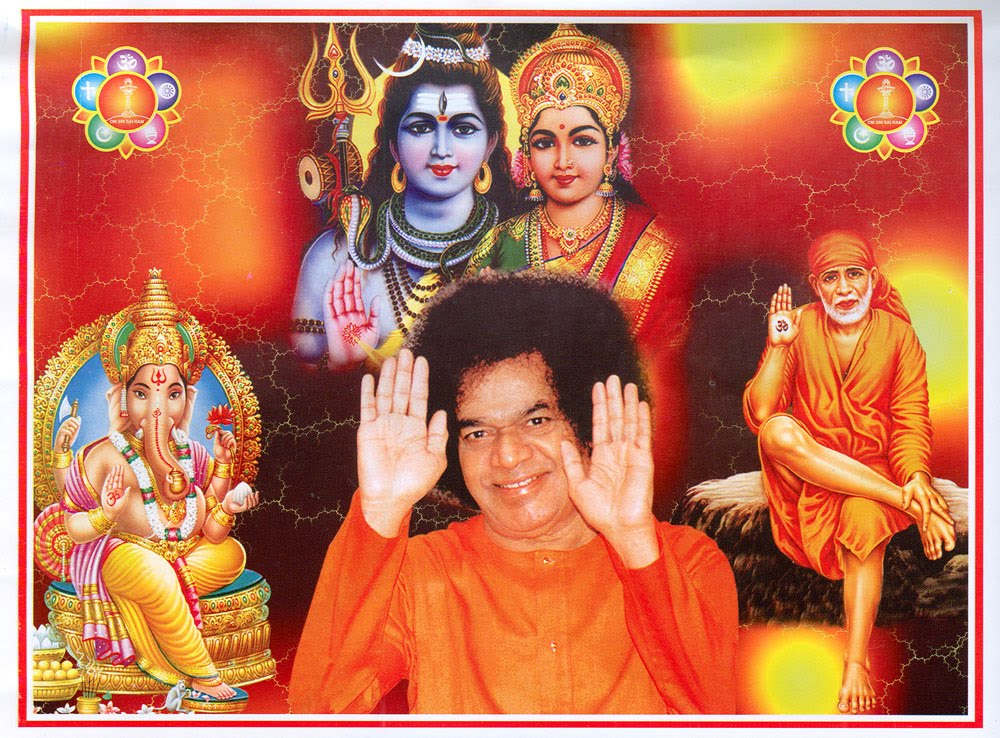Shri Shirdi Sai Speaks- 1st Nov/ Wishing you and your family a very Happy Diwali and a Prosperous New Year
| Posted: 31 Oct 2013 04:41 PM PDT Om Shree Ganeshaya Namaha! Om Sai Ram ! Om Namah Shivaya! Jai Maata Di ! If for some reason you are not able to see , or download the below pictures or click to the below links and pictures- Plz go to http://debu7370.blogspot.com/ You can also have access to all the previous Shirdi Sai speaks mails at the above link.And if any of you would like to receive these messages directly to your mailbox everyday-- To request for Shri Sai Satcharitra books go to : http://www.saiseva.omsrisai.net/store/index.php
1st Day of Diwali DHANTERAS Dhanteras is the first day of Diwali. 'Dhan' refers to wealth; hence, this day is celebrated to worship Lakshmi, the goddess of wealth. On this day, obeisance is also paid to Dhanavantri, the doctor of the Gods. This day is also known as Dhantrayodashi or Dhan Teyras. Another name for the first day of Diwali is Yamadeepdan. This name is associated with Yama, the god of death. The sixteen year old son of King Hima was destined to die on this day. However, the devotion of his wife impressed Yama so much that he returned back without taking the Prince's life. On this day, earthen lamps are lit for ancestors of the family and the lamps are floated down a river or pond. Lamps are also lit at the entrance of a home. Offerings comprising of water, rice, jaggery, vermillion, and flowers are kept for Yama. In South India, this day is known as Asweyuja Bahula Thrayodasi. It is a very auspicious day and every household celebrates by buying silver or gold items. If this is not financially possible, then at least new utensils are purchased. 2nd Day of DIWALI "KALI CHAUDES & DEEPAWALI" It is the fourteenth lunar day (thithi) of the dark forthnight of the month of Kartik and the eve of Diwali. In most of northern India, the second day of Diwali is known as Choti Diwali or small Diwali. Since it is Diwali on a smaller scale, only five to seven lamps are lit and placed at the entrance of the house. A few crackers are burst as well. This day is also known as Roop Chaturdasi. Hindus perform a ritual bath and meditate in order to enhance their beauty. In connection with this, the second day is also referred to as Kali Choudas. People apply kajal (black eye liner) to the eyes in order to ward off kali nazar (evil eye). In South India, the second day is called Narkachaturdashi. It is celebrated to commemorate the death of the demon king, Narakasura.On this day Lord Krishna destroyed the demon Narakasur and made the world free from fear. In Andhra Pradesh, this day is also known as Divvela Panduga. At the end of this day, people take a bath with oil, accompanied by the bursting of firecrackers. 3nd Day of DIWALI Deepawali Diwali marks the end of the harvest season in most of India. Farmers give thanks for the bounty of the year gone by, and pray for a good harvest for the year to come. Traditionally this marked the closing of accounts for businesses dependent on the agrarian cycle, and is the last major celebration before winter. Lakshmi symbolises wealth and prosperity, and her blessings are invoked for a good year ahead. There are two legends that associate the worship of Lakshmi on this day. According to the first legend, on this day, Lakshmi emerged from Kshira Sagar, the Ocean of Milk, during the great churning of the oceans, Samudra manthan. The second legend (more popular in western India) relates to the Vamana avatar of the big three Vishnu, the incarnation he assumed to kill the king Bali. On this day, Vishnu came back to his abode the Vaikuntha; so those who worship Lakshmi receive the benefit of her benevolent mood, and are blessed with mental, physical and material well-being. As per spiritual references, on this day "Lakshmi-panchayatan" enters the Universe. Vishnu, Indra, Kubera, Gajendra and Lakshmi are elements of this "panchayatan" (a group of five). The tasks of these elements are: Lakshmi: Divine Energy (Shakti) which provides energy to all the above activities. Vishnu: Happiness (happiness and satisfaction) Kubera: Wealth (generosity; one who shares wealth) Indra: Opulence (satisfaction due to wealth) Gajendra: Carries the wealth Saraswati: Knowledge On the dark new moon night, the entrances to all homes are lit up and decorated with rangoli patterns to welcome Lakshmi, the radiant consort of Vishnu and the goddess of wealth and lustre. Lakshmi Puja is performed on this day. Diwali is the last day of financial year in traditional Hindu business and businessmen perform Chopda Pujan on this day on the new books of accounts. Diwali is the festival when the new business year begins it is said that Diwali is the "Time to shop or start new ventures". MUHURAT: - 09:04 am to 12:04pm 18:04 pm TO 21:03 pm Best period 22: 15 pm To 23:55 pm 4th Day of DIWALI "NEW YEAR " The Fourth day is called Padwa or VarshaPratipada that marks the coronation of King Vikramaditya and Vikaram-Samvat was started from this Padwa day. The day after the Lakshmi Puja, most families celebrate the new year by dressing in new clothes, wearing jewellery and visiting family members and business colleagues to give them sweets, dry fruits and gifts. On this day, Goverdhan Pooja is performed. As per Vishnu-Puran, the people of Gokul used to celebrate a festival in honour of Lord Indra and worshipped him after the end of every monsoon season. But one particular year the young Krishna stopped them from offering prayers to Lord Indra who in terrific anger sent a deluge to submerge Gokul. But Krishna saved his Gokul by lifting up the Govardhan Mountain and holding it over the people as an umbrella. This day is also observed as Annakoot and prayers are offered in the temples. In temples especially in Mathura and Nathadwara, the deities are given milkbath, dressed in shining attires with ornaments of dazzling diamonds, pearls, rubies and other precious stones. 5th Day of DIWALI BHAI DOOJ Bhai Dooj is a festival celebrated by Hindus on the last day of the five-day-long Diwali festival.The celebrations of this day are similar to the festival of Raksha Bandhan. On this day, sisters pray for their brothers to have long and happy lives by performing the Tika ceremony, and brothers give gifts to their sisters. Legend says Yamraj, the God of Death visited his sister Yami on this particular day. She put the auspicious tilak on his forehead, garlanded him and fed him with special dishes. Together, they ate the sweets, talked and enjoyed themselves to their heart's content. While parting Yamraj gave her a special gift as a token of his love and in return Yami also gave him a lovely gift which she had made with her own hands. That day Yamraj announced that anyone who receives tilak from his sister will never be thrown. That is why this day of Bhai Duj is also known by the name of Yama Dwitiya. Quote of BABA: I always think of Him who remembers Me I require no conveyance, carriage, tonga nor train nor airplane. I am sitting here ready to give you the whole gold embroidered Shelia [valuable cloth], then why go to others to steal rags, and why should you get into the habit of stealing ? Click below to pray to our Shri Sadguru Sainath Sai baba Live darshan |

























No hay comentarios :
Publicar un comentario